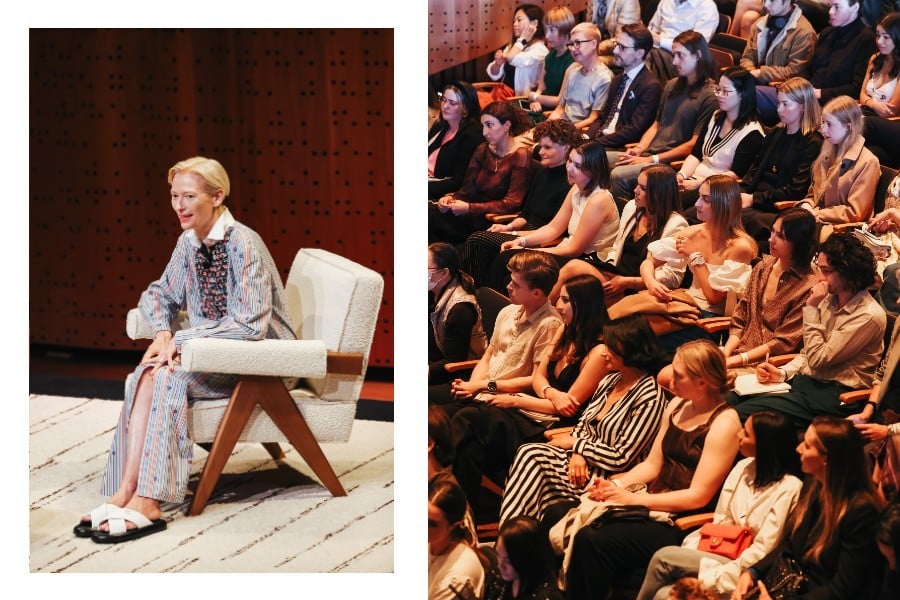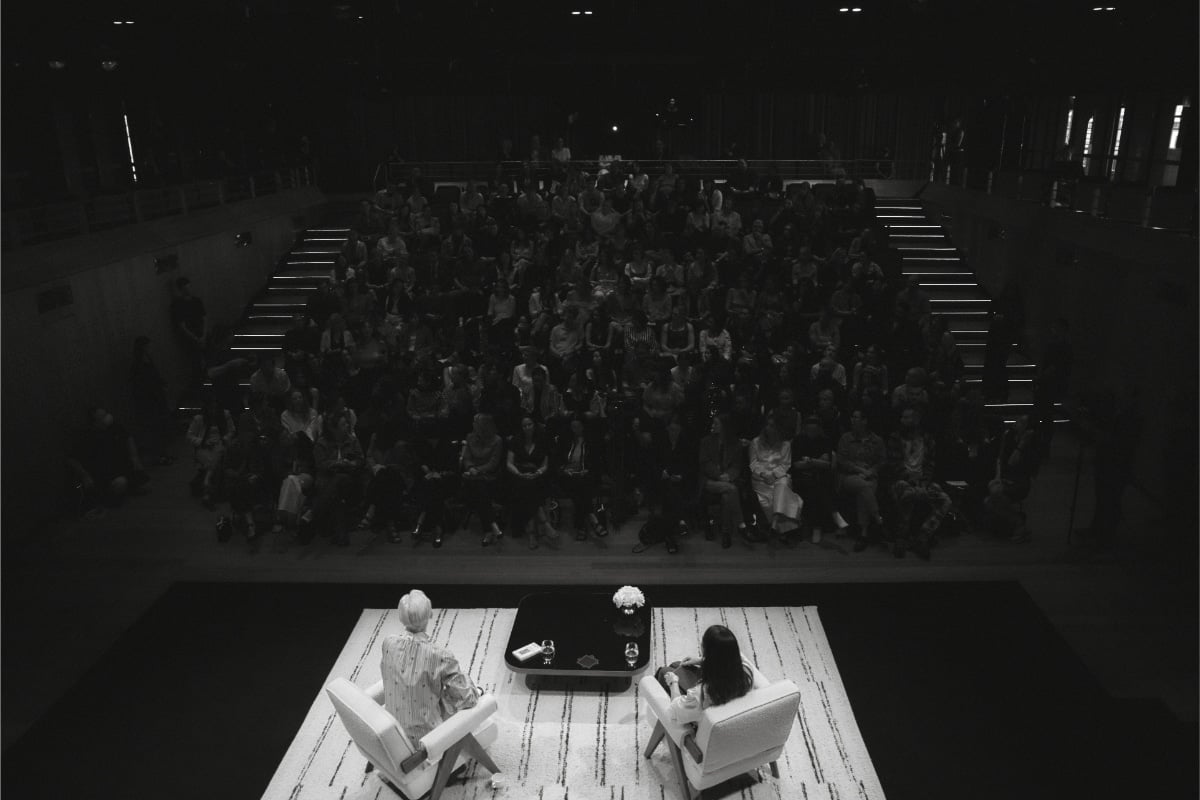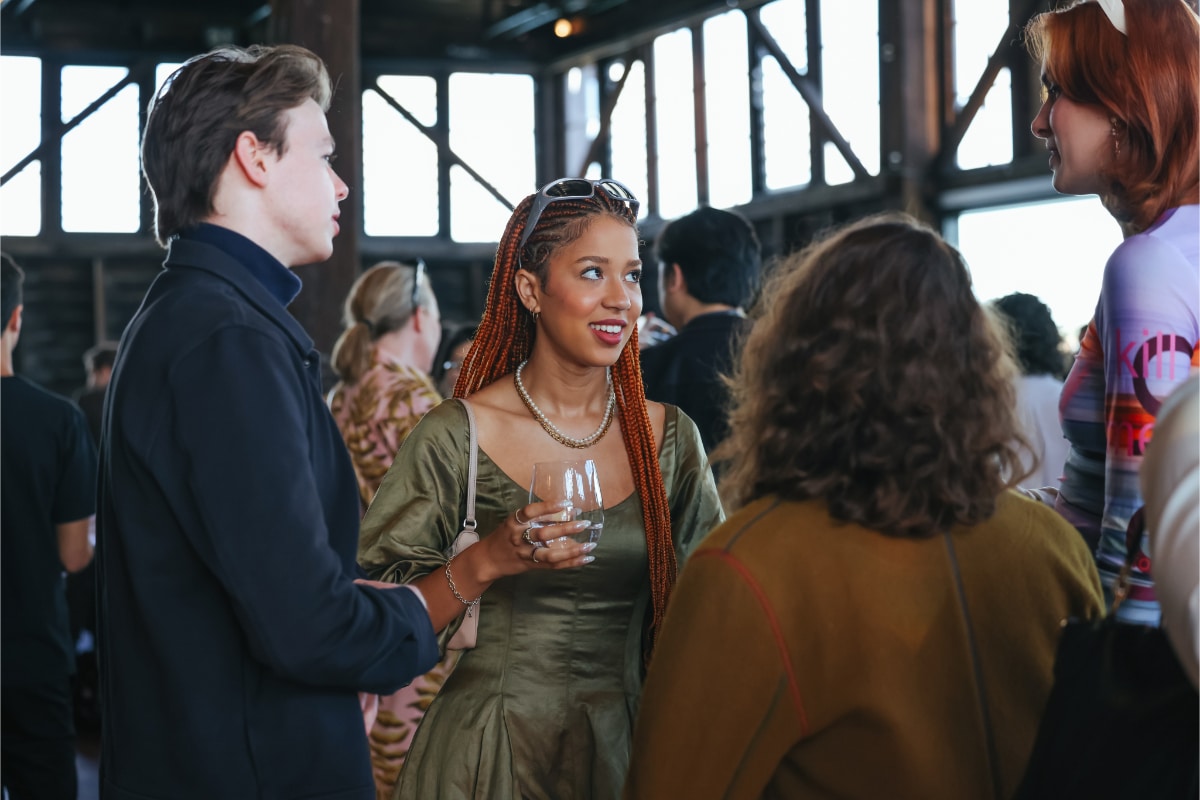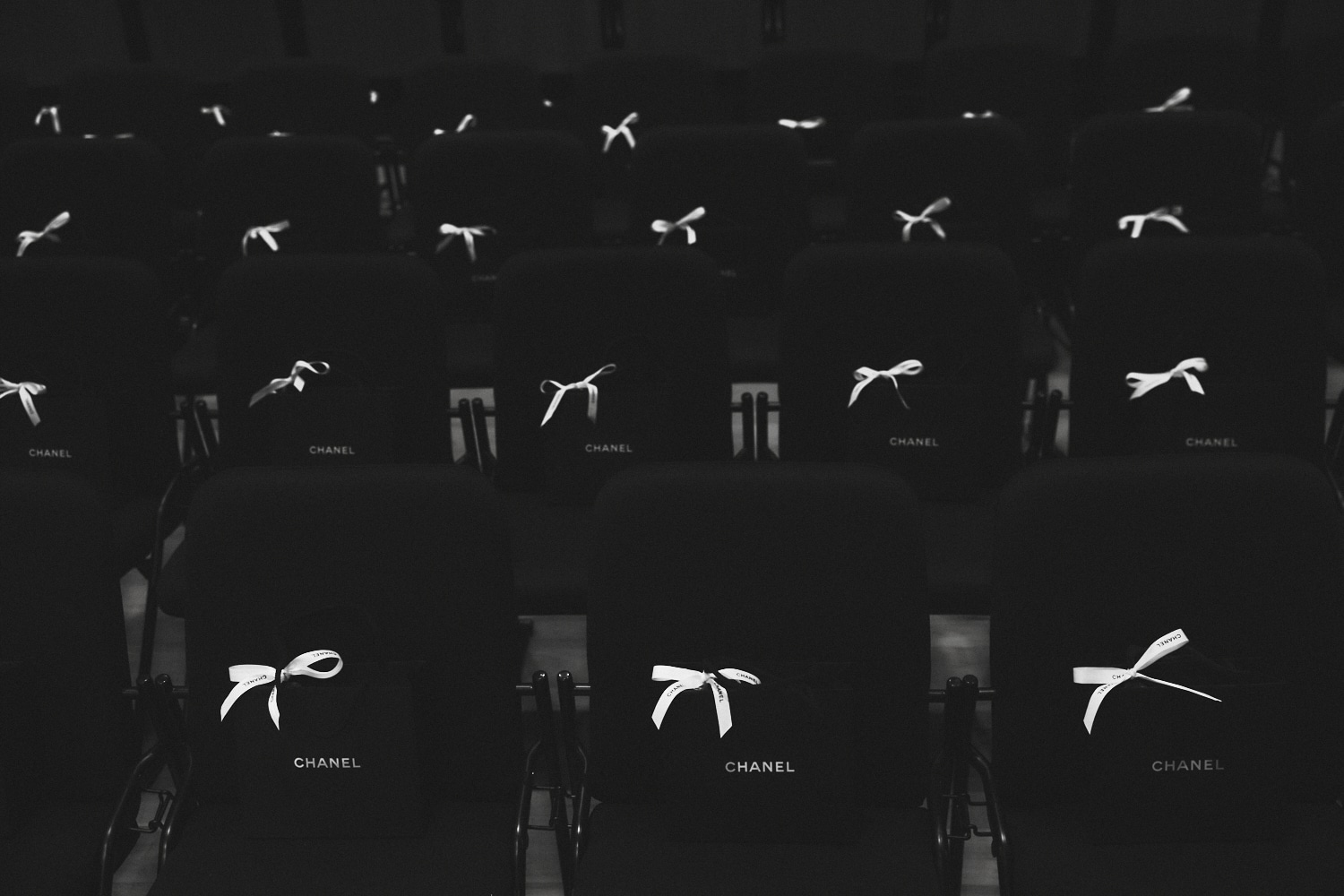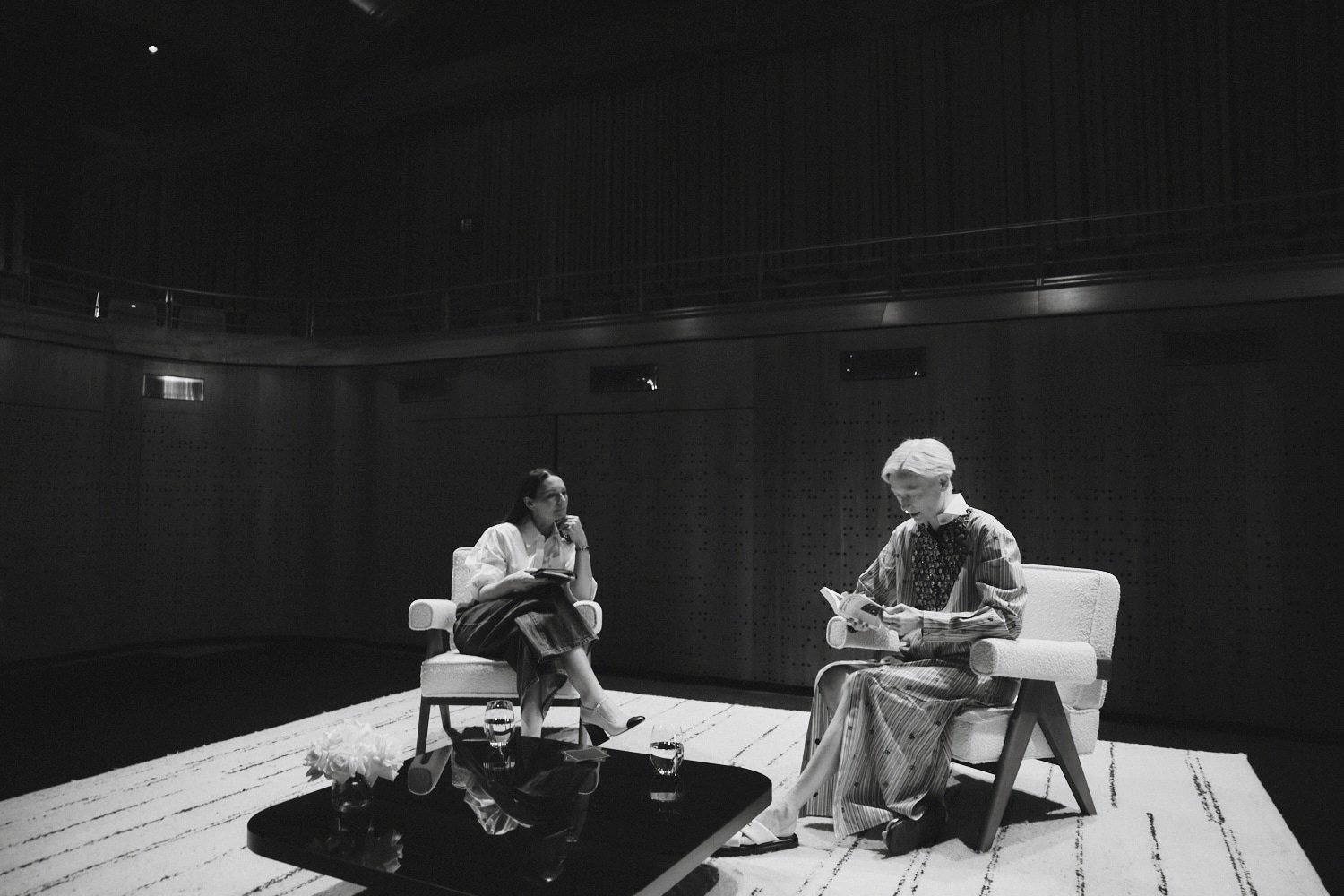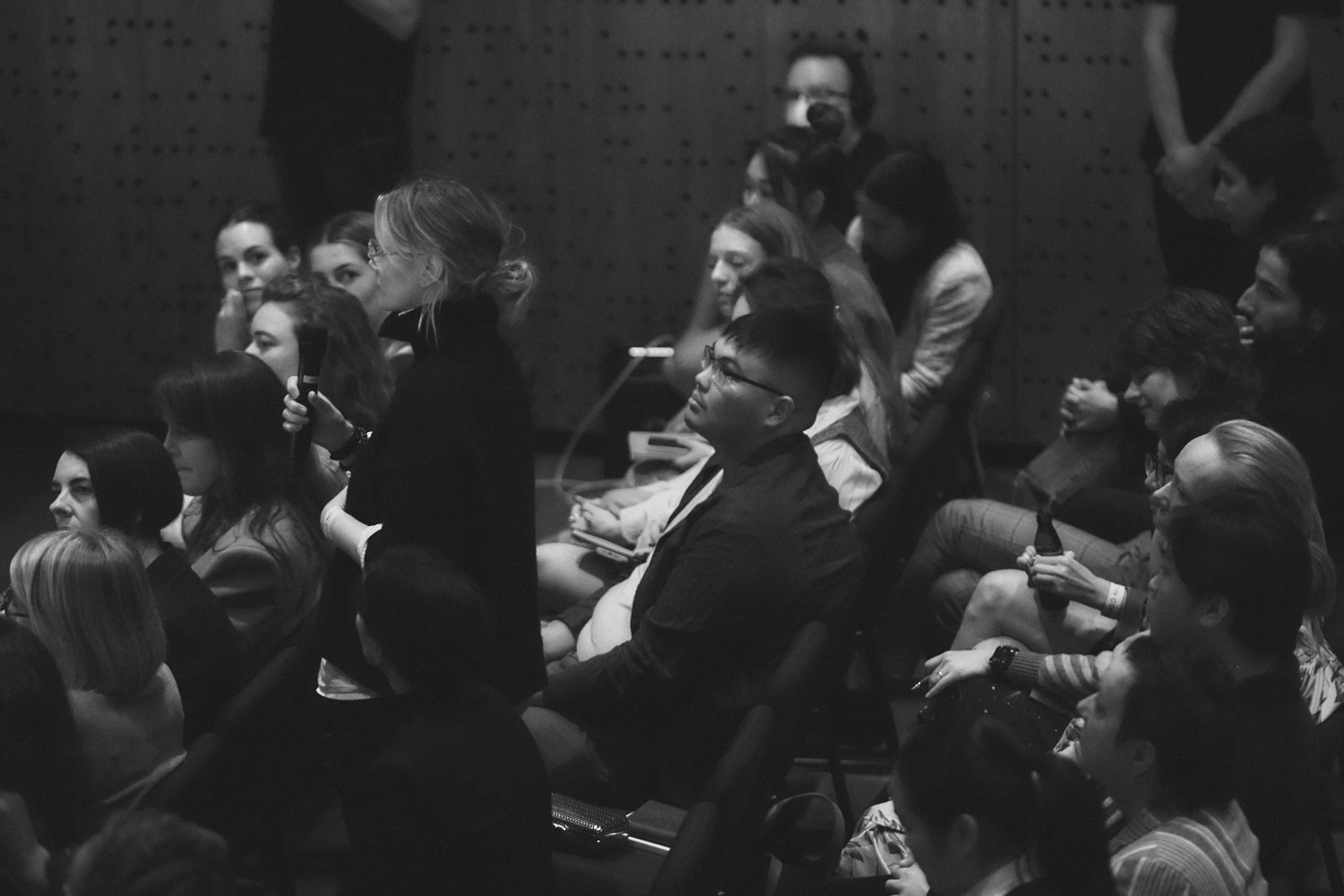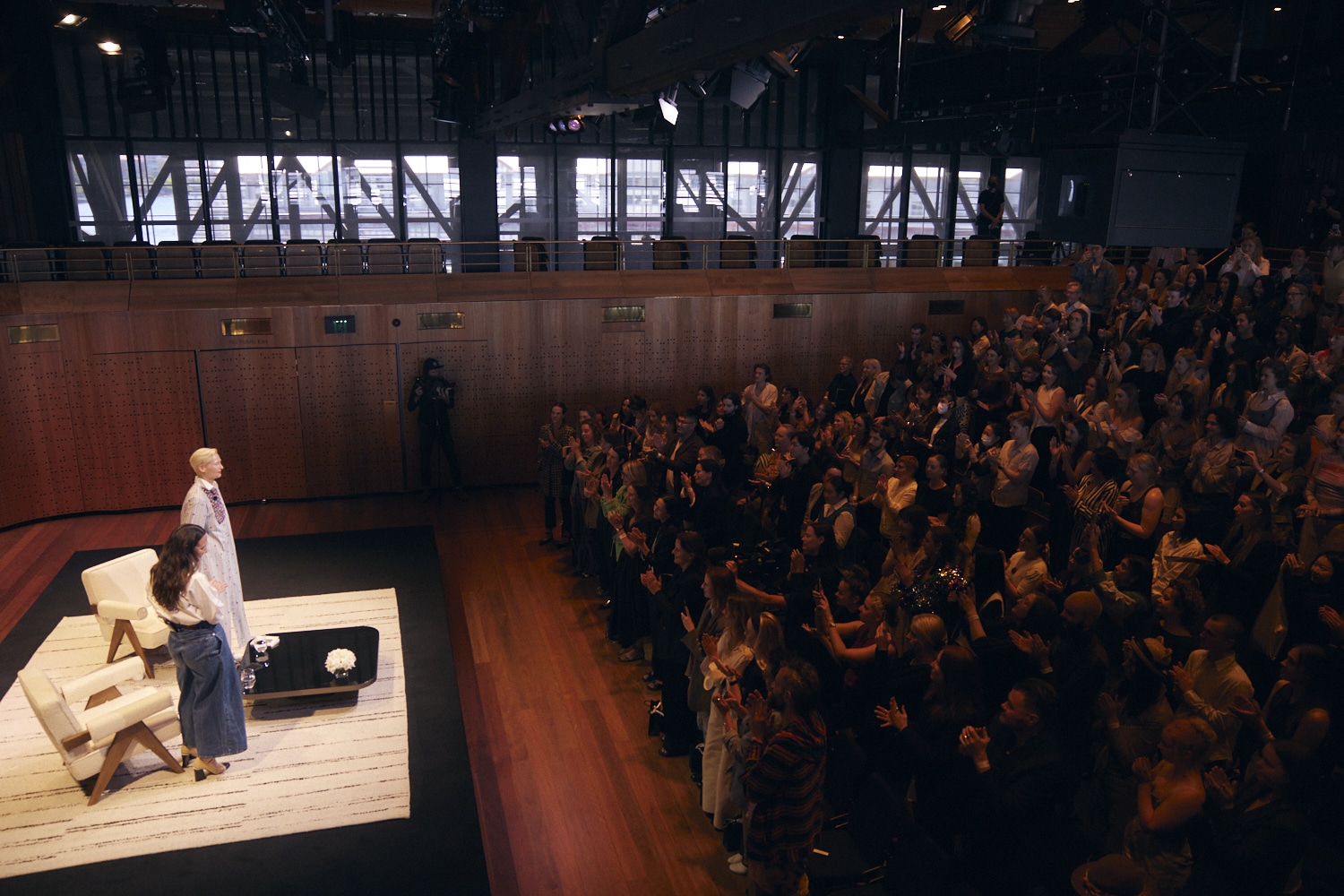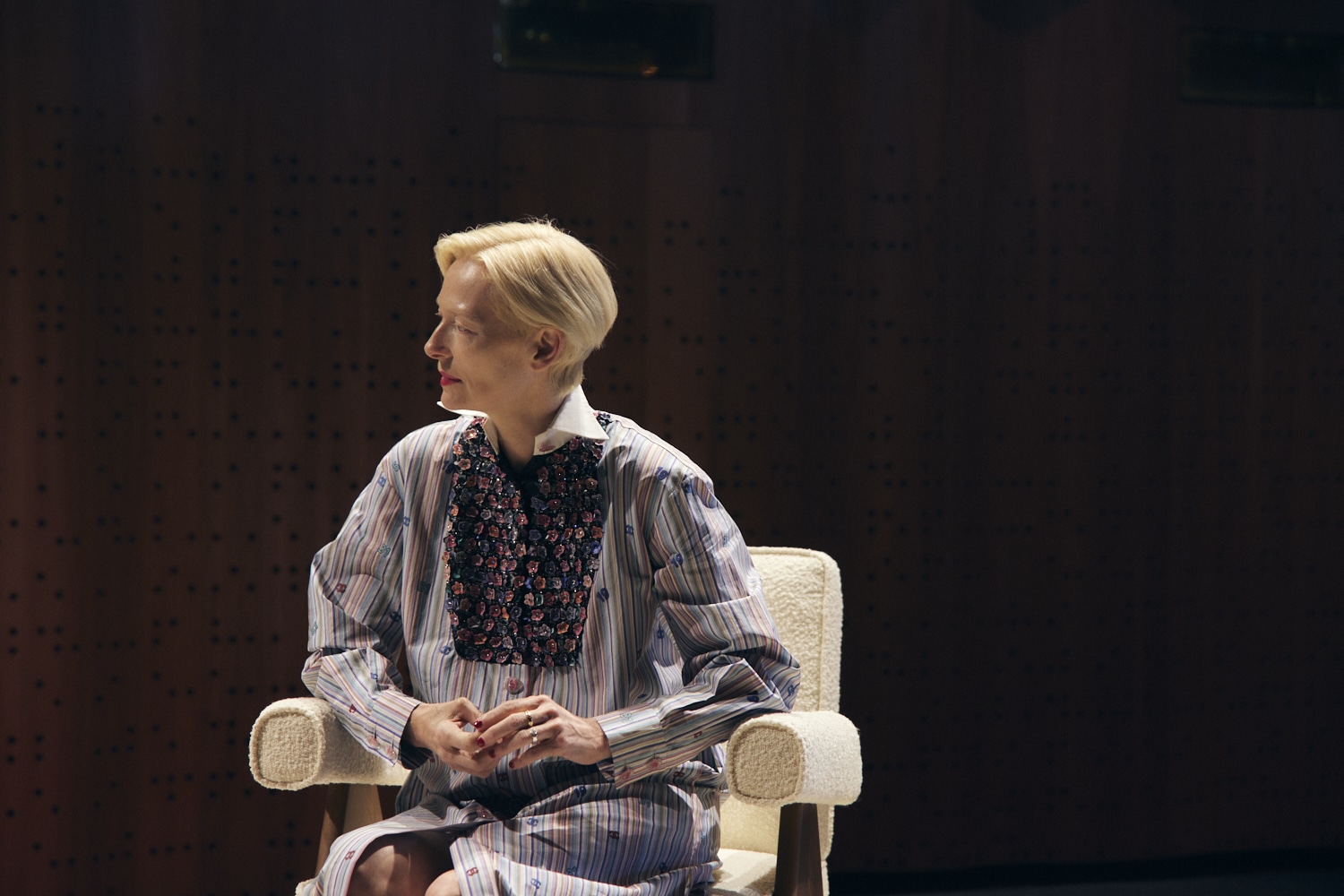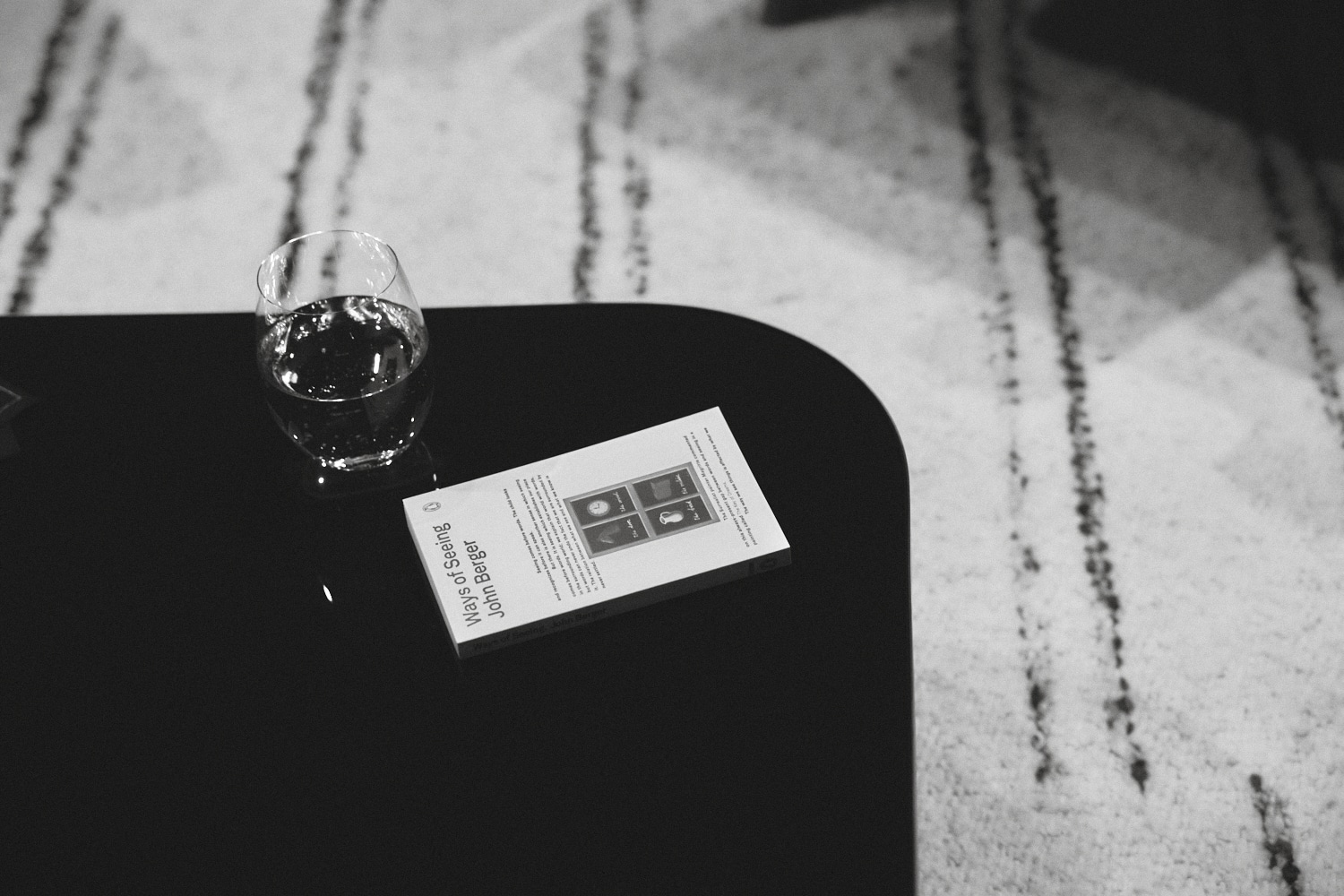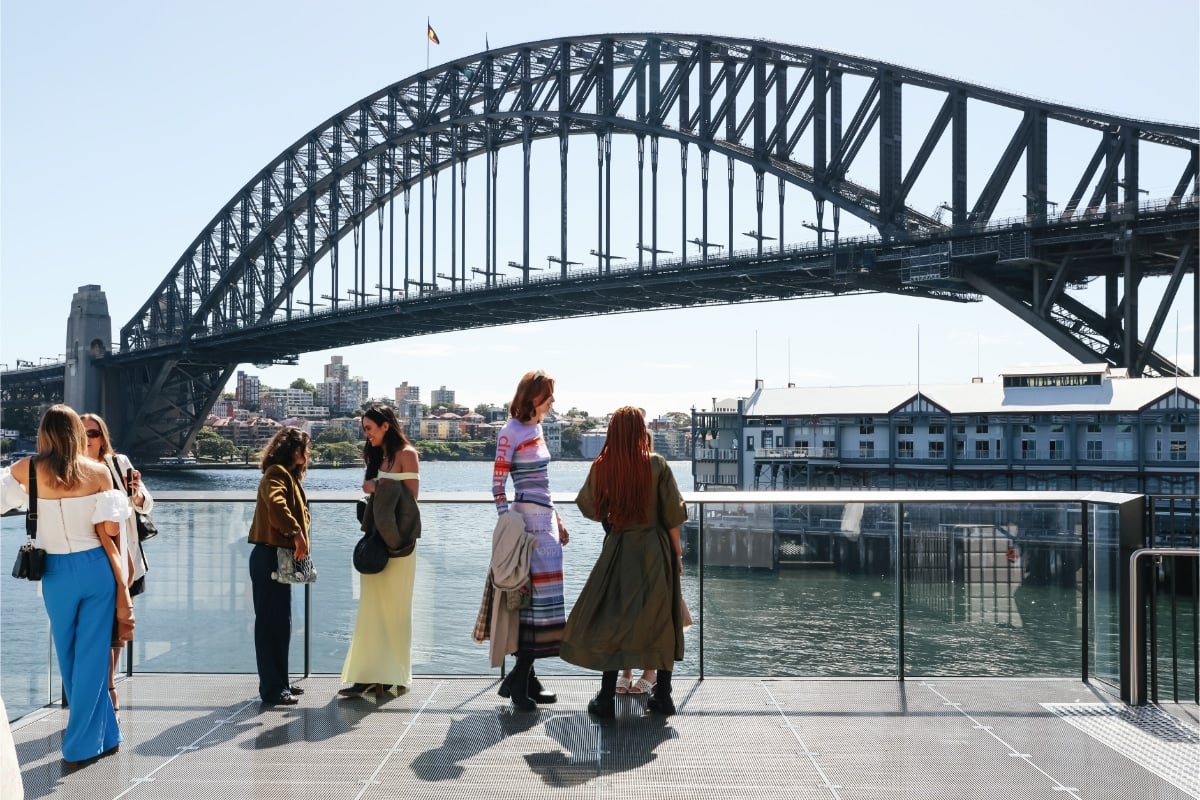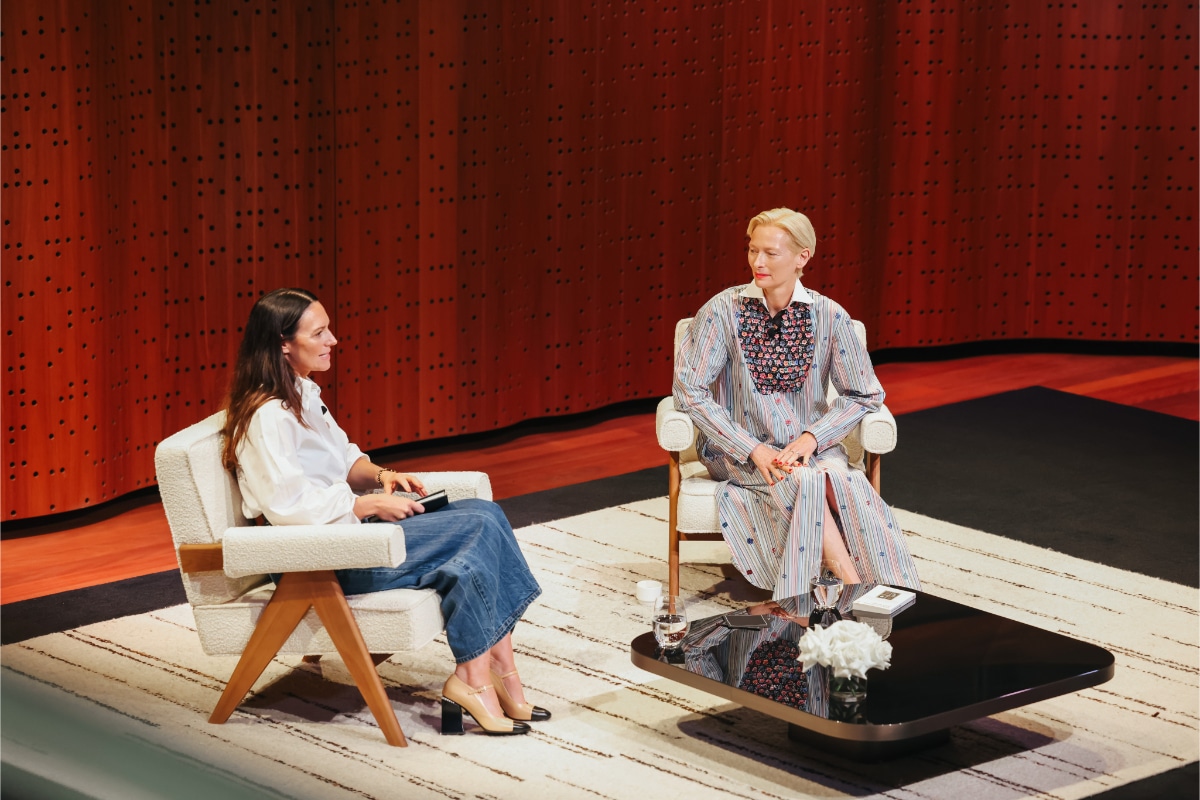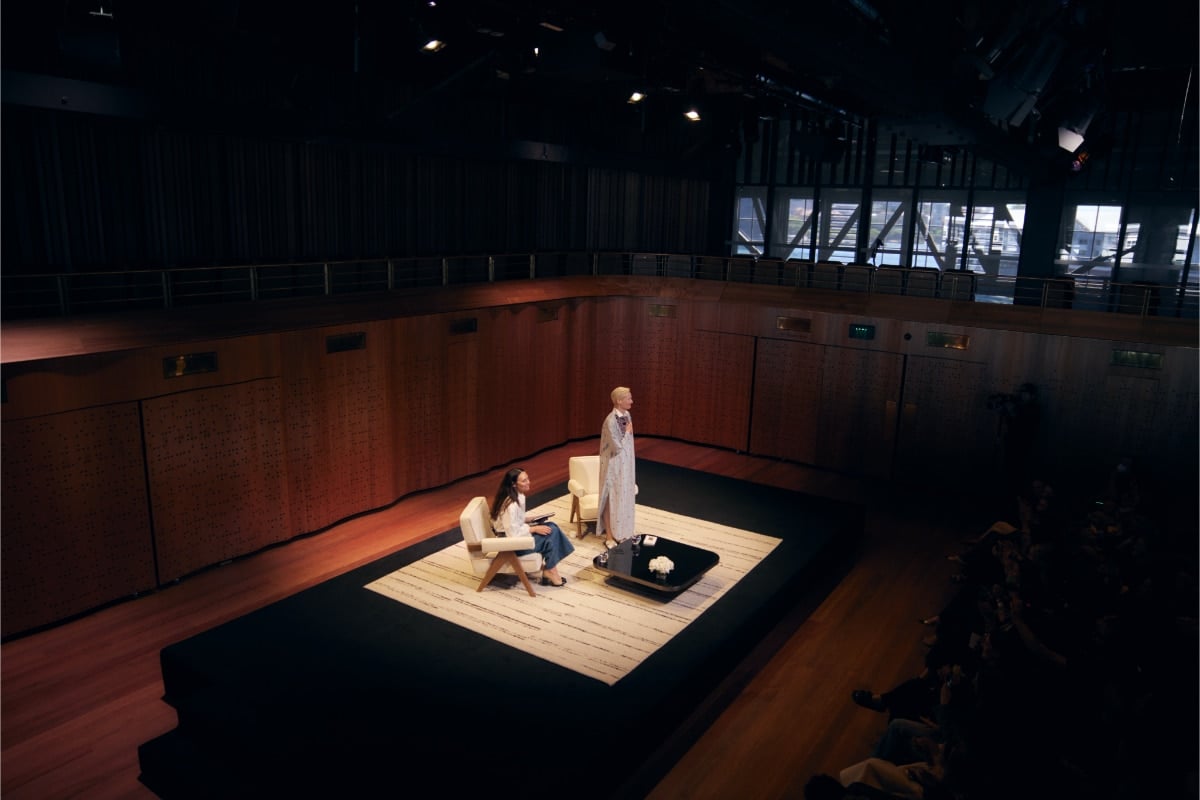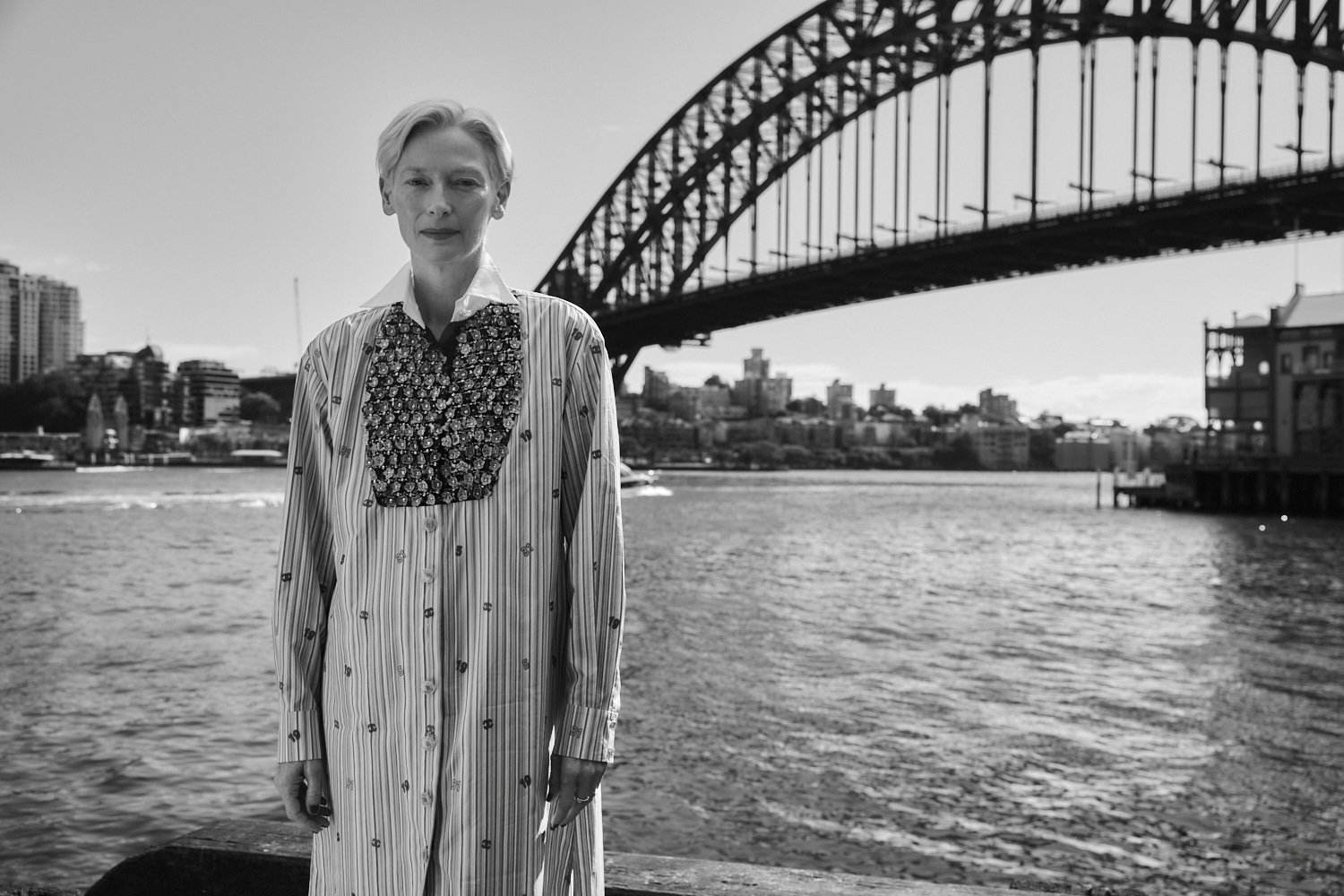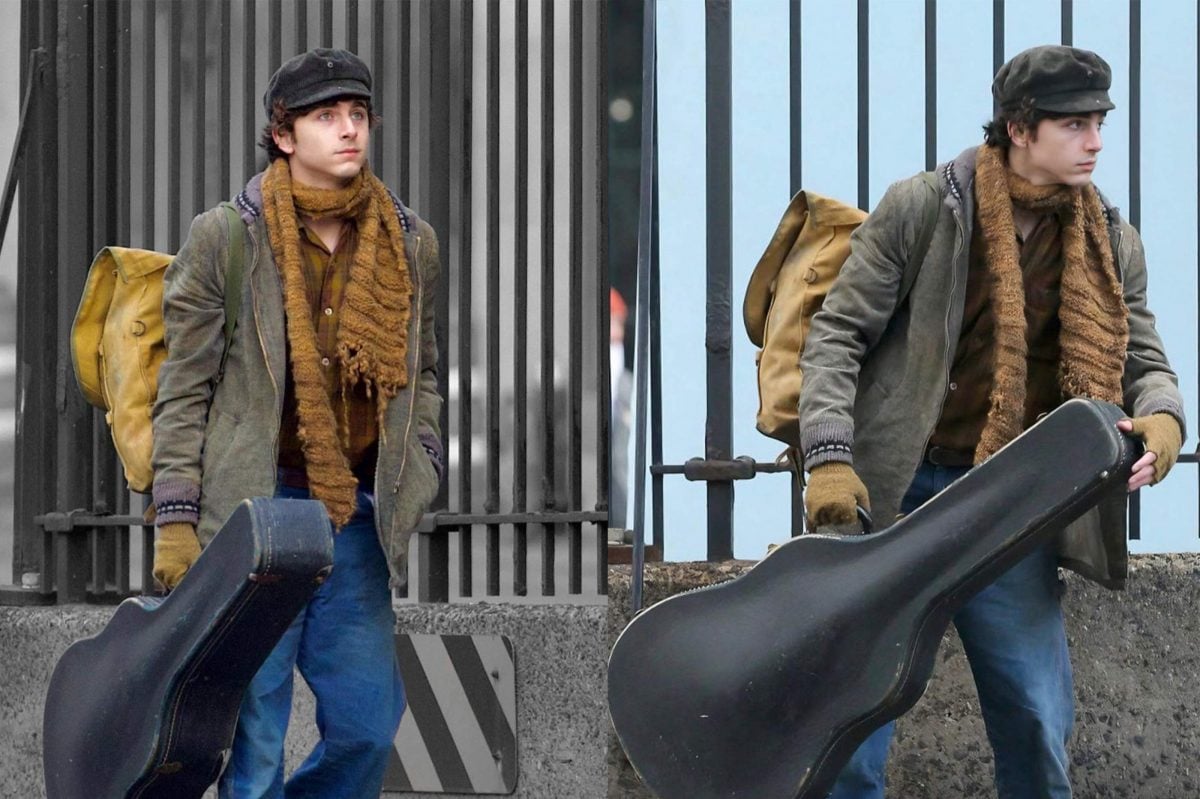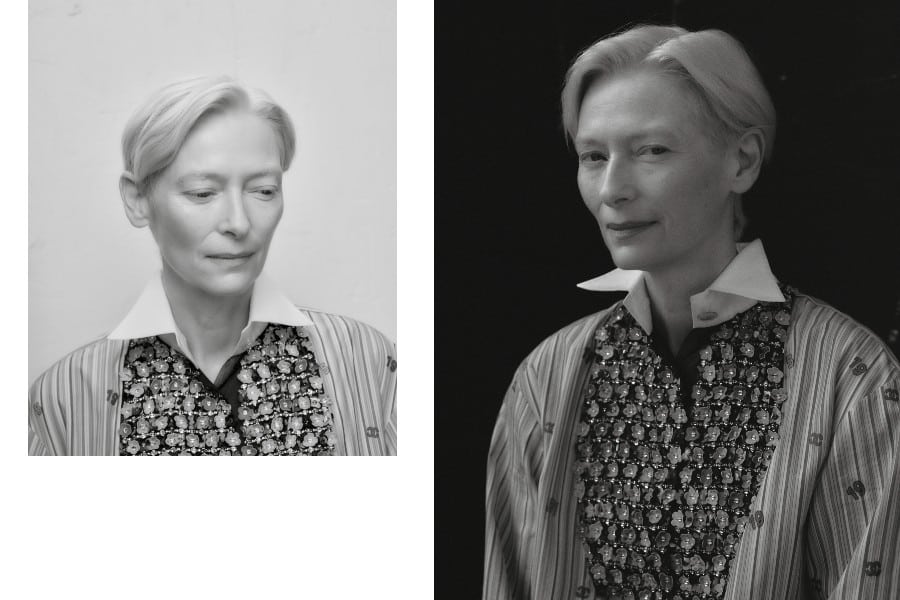
Upon first reading art critic and philosopher John Berger’s Ways of Seeing sometime in my early twenties, I recall simultaneously feeling the deep joy of awakening along with sharp regret that it had not found its way into my hands sooner. How could I have been spending my days on an economics campus when I should have been here, with John, in this brave new world of storytelling, image-making and art? But truly, how? Enlightenment was met with outrage. My first copy: stained but surviving, still wears the scars of repeatedly underlined pages but none more boldly than his words: “The relation between what we see and what we know is never settled.”
Had I told my postgraduate self that on a clear November Sydney day in the year 2022 I would sit an arm’s length from artist, icon and CHANEL ambassador Tilda Swinton reading from these same pages, I would have thought I was projecting the same kind of invented reality from Spike Jonze’s noughties release of Adaptation; in which I would have just recently watched Swinton play in from my college dorm.
‘Tilda’ as those in her inner orbit refer to her – very gently, because, by God, she exudes unparalleled grace - was in fact very real as she sat at The Australian Chamber Orchestra’s custom-designed and calibrated Neilson Theatre to an audience of up to 200 students across theatre, film, arts and design. In CHANEL’s mission to support the freedom of creation and honour Gabrielle Chanel's legacy of engagement in arts and culture, it led the assembly of students from Australia's leading universities, inclusive of the National Institute of Dramatic Art (NIDA), The National Art School and as far-reaching as the Griffith Film School and WAAPA. The ‘In Conversation’ followed by a screening of Three Thousand Years of Longing – Swinton's most recent film that premiered at Cannes Film Festival earlier this year, shot and directed by Australian director, George Miller – met Swinton’s desire to connect with emerging creative minds on her return to Australia. A mere, but highly purposeful bypass from film-making in Fiji, and on route to the Marrakech Film Festival where she was to be honoured for her commitment to film-making.
CHANEL had placed a copy of Ways of Seeing on each seat, by no means a prop for Swinton, but as an act of constancy as she is driven by a compulsion, or perhaps it is more of solemn responsibility, to those who have left her –Derek Jarman, long-term mentor and director of British history drama Caravaggio, widely known as Swinton’s first major film, Berger and dare I say Bowie – to carry the torch for creation of a certain sensibility; fostering the next generation of artists towards pursuit of their human potential and accuracy in their making.
Swinton, whom Berger had such a connection with he believed they had “touched in another lifetime,” was more than just a disciple of his work but someone he trusted to make, and write, Seasons in Quincy: Four Portraits of John Berger produced by the Derek Jarman Lab; an AV hub for graduate film-making that was established. The film, released in 2016, preceded his death just days into the new year that followed, with Swinton recalling to our audience that she was inspired to do it (having done similar with Jarman) as an investment in his legacy and a precise narrative of the intellectualist while he was still able to participate in it. The two shared a birthday (both Scorpio’s if you care as much about such things as I do) and forged a forever bond.
Indeed, short, incidental affairs, do not appear to be Swinton’s thing. In what counts as almost 100 feature films over her career so far, the intense kinship and longevity of her creative relationships is perhaps her greatest accolade of all, with her list of constant collaborators reading like my MUBI subscription highlights list; Jim Jarmusch, the Coen brothers, Luca Guadagnino, Wes Anderson and Joanna Hogg. Hogg is notable as a long-time friend and godmother to her daughter, with whom she has worked on many, often autobiographical films; most recently The Eternal Daughter, The Souvenir and The Souvenir Part II. Both in which Swinton’s daughter Honor Swinton Byrne – more psychology student than actor – and her beloved Spaniel Setters starred in only to win the Grand Jury prize at Sundance in 2019.
The connection to CHANEL, initially forged by Karl Lagerfeld himself, has been a slow but sure burn, leading to recent ambassador projects such as CHANEL’s Next Prize, set to the stage of the Venice Biennale, which awards emerging creatives with a substantial cash prize and access to hand-selected mentors. It is a dedication to culture, she describes as “sincere and exemplary.”
It is perhaps playing this role – a champion of culture, an advocate for the power of creativity to generate beauty, emotion and change – that Swinton may just feel most at ease. While some may see her as a red carpet fixture and Oscar-winning best support for George Clooney – for anyone with the privilege of spending time in Swinton’s ecosystem, it becomes vitally clear that she’s not here for Hollywood.
One of her regular jokes on her title as ‘actor’, a riff on Fellini’s famous La Dolce Vita line, is, “I'm too serious to be a dilettante and too much a dabbler to be a professional.” Similarly, in answering questions for the audience, she admits that the big studio films are actually more like experimental film-making for her. “It is a very rare occurrence I would walk into a studio film and just play a role, whereas I am often involved with the films from their inception, producing, right down to finding the money to make the film.” Just like she did with Sally Potter’s Orlando that has long cemented her as a queer icon. Although, Swinton almost grudgingly admits that “sometimes the less money there is the better the work is.”
In essence, one can’t help feeling that Swinton is still one of us. “When you are a young creative, there is a feeling that there is this sort of world out there, the professional world, that you have to kind of enter, to go through a sort of obstacle race and probably, possibly, give up bits of yourself to get there,” she shares. “Not true. And anybody that tells you that, I do believe they are misleading you. And that actually what the culture needs is you, with all your bits intact. There is no culture without you. All of us. Culture is in us."
"I think the most valuable piece of advice, especially for emerging artists, would have to be not to rely on any advice at all but to develop a lively relationship with one's unique instinct and to trust the guidance of one's own voice above any other.”
The full conversation, including an impactful audience Q&A between Swinton and students in the audience, will be made available by CHANEL to students around the nation. In the meantime, you can see some of the most memorable moments from the in conversation, captured below.

